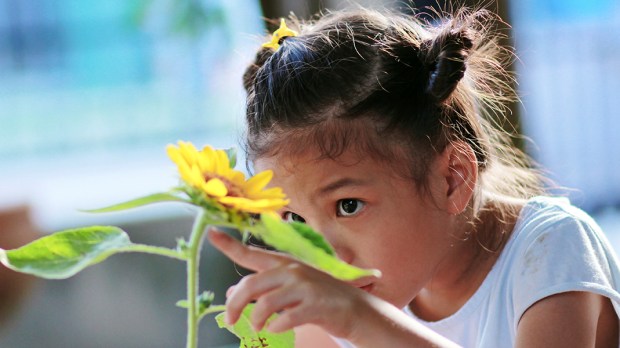Vacations often offer the possibility for greater contact with nature. This gives us many occasions to rediscover some of the parables with our children. Here are some ways you can approach these biblical texts with your kids using the natural environment.
- After observing birds or admiring flowers, re-read the parable that teaches us trust inspired by birds and lilies of the field (Matthew 6:26-30).
- After a walk through a vineyard, think about Jesus who is like the vine and we are the branches (John 15:1-8).
- The sight of wheat fields brings us to several parables. You can start with the sower (Matthew 13:3-23, Mark 4:3-20, Luke 8:4-15). Jesus teaches us to listen to the Word and put it into practice. The grain of wheat that grows by itself (Mark 4:26-29) shows us that the Kingdom will not be founded by force nor will it grow by human effort; it simply grows through peaceful germination, through living, gentle growth under the influence of the grace of God, because souls are for the Kingdom and the Kingdom is for souls. The good seed and the straw (Matthew 13:24-43) presents the devil sowing evil in the world, and the Lord who, up to the end, allows man the possibility of converting, of choosing good. The grain of wheat that dies in the soil (John 12:24) shows us that we must die in order to live, to lose our life in order to gain it. With sacks of hay drying in the sun, remember the parable of the straw and the log for not judging others (Matthew 7:1-5, Luke 6:37-42).
- In an afternoon of harvesting fruit, meditate on the parable of the tree judged by its fruits (Matthew7:16-20, Luke 6:43-49) or the one on the sterile fig tree (Luke13:6-9).
- If you encounter a flock of sheep, you can connect that to the parable of the lost and found sheep (Matthew18:15-42, Luke15:3-7) or the one about the Good Shepherd (John 10:11-16).
- Mountain streams and water fountains you may run across, and their refreshing coolness, bring to mind the living water that Jesus gives us (John 4:10-15).
- Garden or field plants recall the mustard seed (Matthew 13:31-58, Mark 4:30-32, Luke 13:18-35) that introduces us to the contemplation of the Kingdom of God. In the Church, as in each one of us, it starts small and later grows to develop beyond all expectations. Explain to the children that the mustard seed is very small and that, once it is planted, it grows into a tree that is so big the birds can sit on its branches.
Christine Ponsard

Read more:
6 Simple ways to study the parables with your children

